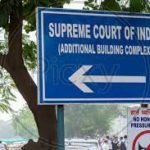The High Court had quashed criminal proceedings against Respondent No. 2, Mrs. Ranjana Sharma, under Section 138 of the Negotiable Instruments Act, 1881 (NI Act).
Mrs. Ranjana Sharma, along with her daughter and Mr. Rakesh Rajpal, were directors of M/s R Square Shri Sai Baba Abhikaran Pvt. Ltd. (Accused No. 1). The company, through its directors, approached HDFC Bank for a Revolving Loan Facility as Inventory Funding. After the bank extended loan amounts, the company failed to repay outstanding dues, leading its account to be classified as a Non-Performing Asset (NPA) on 27.03.2018. Subsequently, a cheque for Rs. 6,02,04,217/- issued by the company was dishonoured for “account blocked”. A legal notice was sent to all accused, but it was returned “unclaimed”. The Trial Court had initiated process against the respondents on 16.12.2018. The High Court, however, quashed the proceedings against Mrs. Ranjana Sharma, citing insufficient averments in the complaint to invoke her vicarious liability under Section 141 of the NI Act.
Law Involved The primary legal provisions in contention are:
- Section 138 of the Negotiable Instruments Act, 1881 (NI Act), which deals with the dishonour of cheques.
- Section 141 of the NI Act, which addresses “Offences by companies” and the vicarious liability of persons responsible for the company’s business…. The Supreme Court also heavily relied on its previous judgments concerning Section 141 NI Act, particularly:
- S.M.S. Pharmaceuticals Ltd. (I) and (II), which set out principles for establishing vicarious liability….
- Other precedents like Neeta Bhalla and Another, Siby Thomas vs. Somany Ceramics Limited…, Ashok Shewakramani and Others vs. State of Andhra Pradesh and Another, and K.K. Ahuja… were also cited.
Reasoning The Supreme Court meticulously reviewed the High Court’s decision and the complaint’s averments, guided by established precedents on vicarious liability under Section 141 NI Act.
- High Court’s Error: The Supreme Court noted that the High Court had quashed the proceedings against Mrs. Ranjana Sharma on the ground of “lack of adequate averments”.
- Interpretation of Section 141: The Court reiterated that for a person to be vicariously liable under Section 141, the complaint must contain specific averments that the person was “in charge of, and responsible for the conduct of the business of the company” at the time the offence was committed. Mere designation as a director is insufficient.
- Sufficiency of Averments in the Complaint:
The complaint specifically averred that “Accused Nos. 2 to 4 are the Directors of Accused No. 1 Company and is responsible for its day-to-day affairs, management and working of the Accused No. 1 – Company”. The Court held that this general averment, on its own, was sufficient to meet the threshold established by S.M.S. Pharmaceuticals-I.
Crucially, the complaint provided further, detailed specific roles for Mrs. Ranjana Sharma, going beyond a mere omnibus statement. These included:
Her participation in the negotiations for the Revolving Loan Facility.
Her authorization and action in signing various relevant documents like demand promissory notes, hypothecation agreements, mortgages, guarantees, and indemnities.
Her authorization to file particulars of charge created in favour of the bank with the Registrar of Companies.
Her authorization and action in depositing the original title deeds of the company’s immovable property as security….
Her submission of a personal guarantee and supplemental continuing guarantee for the loan transaction.
- Distinguishing Precedents: The Court found that the High Court’s reliance on cases like Siby Thomas and S.P. Mani was misplaced because, unlike those cases, the present complaint did not merely repeat statutory language but provided concrete details of Mrs. Ranjana Sharma’s active involvement in the company’s financial dealings related to the dishonoured cheque1920. The detailed averments indicated her specific role in the transaction and management, satisfying the requirements of Section 141(1) of the NI Act.
Holding
The Supreme Court allowed the Criminal Appeal. Consequently, the judgment of the High Court of Judicature at Bombay dated 10.01.2024, which had quashed the criminal proceedings against Mrs. Ranjana Sharma (Respondent No. 2), was set aside. The Court also restored the Trial Court’s order dated 16.12.2019, which had issued process to Mrs. Ranjana Sharma. The Metropolitan Magistrate, 7th Court, Bhiwandi, Dadar, Mumbai, is now directed to proceed with the case against Mrs. Ranjana Sharma in accordance with law.
Hdfc Bank Limited V. State Of Maharashtra And Another
Supreme Court:2025 INSC 759: (DoJ 22-05-2025)






